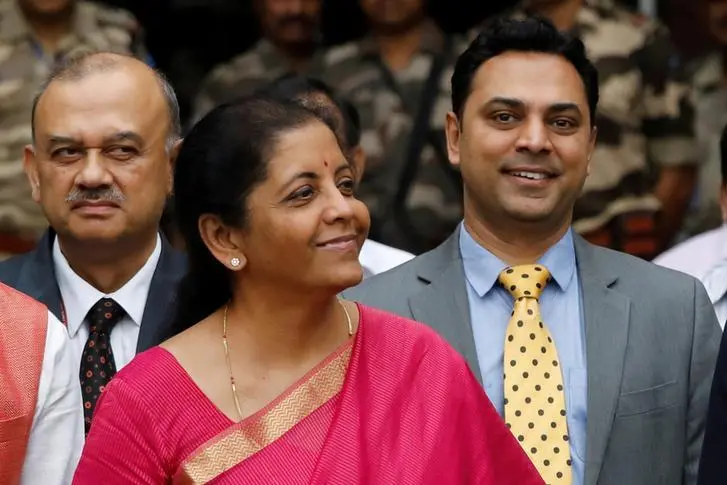PHOTO
MUMBAI - Slashing taxes will only go so far to stimulate India’s ailing $3 trillion economy. Sweeping changes to levies are likely to feature in the upcoming annual budget announcement. Lower rates are just one part of the fix, however.
Finance Minister Nirmala Sitharaman will look to build on a dramatic cut to corporate dues announced last year. The government is on the right track trying to encourage investment by leaving more money in company accounts. Cutting the headline corporate tax to 22% from 30% was a move welcomed by executives struggling with high operating costs.
Any further changes to the tax regime will be bold, coming at a time when the government will likely miss its fiscal deficit target set at 3.3% of GDP for the current financial year. And, as Reuters has exclusively reported, India is expected to record its first fall in direct tax collection in at least two decades.
One new move may be to prop up the stock market by abolishing capital gains tax on shares held for more than one year. That would help valuations ahead of planned privatisations of state assets like Air India, Bharat Petroleum and Shipping Corporation of India.
The “dividend distribution tax,” under which companies absorb the costs on payouts to investors, may also be scrapped; the government is sufficiently digitised to collect directly from shareholders. Scrapping that levy on dividends, roughly 20% including surcharges, paid on top of corporate tax, will lower the effective company rate further. New Delhi could pocket more in the end, as dividends would be taxed at higher personal rates.
There are calls from within Prime Minister Narendra Modi’s own party to abolish personal income taxes, but that would benefit no more than 3% of the population. More likely, and useful, would be an inheritance tax and incentives that can aid home purchases to help clear bad loans held by real estate developers clogging up the banking system.
The biggest reform, though, would bridge the gap between policy intent and implementation. The government pledged to end “tax terrorism” when it came to power in 2014. But tax experts complain high targets assigned to collectors make them unhealthily aggressive, especially in a context of sliding profit.
India is also in dire need of a proper domestic dispute resolution system to end the multi-year battles companies like Vodafone and Britain's Cairn Energy have faced. It will take more than lower rates to bring true tax relief.
CONTEXT NEWS
- India will on Feb. 1 announce its annual budget for the year to March 2021. The government is expected to miss its fiscal deficit target of 3.4% of gross domestic product for the current financial year.
(Editing by Pete Sweeney and Sharon Lam)
© Reuters News 2020




















